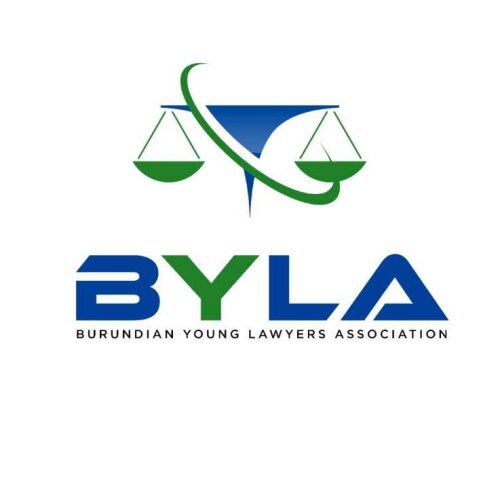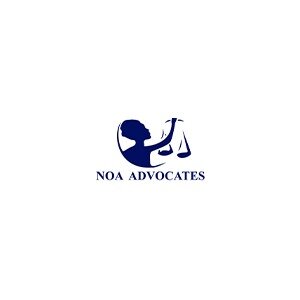Best Renewable & Alternative Energy Lawyers in Bujumbura
Share your needs with us, get contacted by law firms.
Free. Takes 2 min.
List of the best lawyers in Bujumbura, Burundi
About Renewable & Alternative Energy Law in Bujumbura, Burundi
Bujumbura, the capital and main economic hub of Burundi, has seen a growing interest in renewable and alternative energy sources in recent years. As the country works towards improving energy access and sustainability, local policies and regulations encourage the development of energy derived from sources such as solar, hydroelectric, wind, and biomass. Legal frameworks are emerging to support these efforts, aiming to address environmental concerns, attract investment, and promote responsible project development.
Why You May Need a Lawyer
Dealing with renewable and alternative energy projects in Bujumbura involves navigating a complex landscape of regulations, permits, and contracts. Here are some common situations where seeking legal advice can be crucial:
- Starting a new renewable energy business or project and needing to comply with local regulations
- Negotiating contracts for energy supply, land use, or joint ventures
- Applying for licenses and permits required for project development and operation
- Resolving disputes with partners, suppliers, or regulatory authorities
- Understanding environmental impact assessments and fulfilling compliance obligations
- Seeking incentives or grants for renewable energy investments
- Protecting intellectual property related to energy technologies
- Dealing with cross-border energy trade or international funding sources
Local Laws Overview
Burundi’s legal landscape for renewable and alternative energy is shaped by national policies that support diversification of energy sources and sustainable development. Several key elements in Bujumbura include:
- The National Energy Policy, which prioritizes the expansion of renewable energy projects
- Permitting requirements administered by the Ministry of Hydraulics, Energy, and Mines, which oversees project approval and operation
- Environmental regulations that mandate assessments before major projects can begin, with guidelines for preserving natural resources
- Investment codes that provide incentives, such as tax exemptions or customs benefits, for renewable energy projects
- Regulations on electricity tariffs, grid connection, and power purchase agreements with the state utility (REGIDESO)
- Special licensing for importing, distributing, or installing renewable energy equipment
Given the evolving nature of the law, it is vital to remain up to date with regulatory changes, especially as Burundi continues its efforts to attract investment in sustainable energy.
Frequently Asked Questions
What types of renewable energy are commonly used in Bujumbura?
The most common renewable energy sources in Bujumbura are hydroelectric power, solar power, and to a lesser extent, wind and biomass energy.
Do I need a license to start a solar energy business?
Yes, operating a renewable energy business typically requires obtaining licenses and permits from ministries and regulatory agencies in Burundi before commencing operations.
What incentives are available for renewable energy projects?
Some incentives available include tax breaks, import duty exemptions for renewable energy equipment, and special grants or funding from government bodies or development partners.
Who regulates the energy sector in Burundi?
The Ministry of Hydraulics, Energy, and Mines is primarily responsible for regulating the energy sector, including the renewable energy segment.
Are environmental impact assessments required?
Yes, significant energy projects must undergo environmental impact assessments as part of the project approval process to ensure compliance with local environmental protection laws.
How are electricity prices determined for renewable energy?
Electricity prices for renewable projects are typically set through regulatory guidelines or negotiated directly with REGIDESO, the main state utility.
Can foreign investors participate in renewable energy projects?
Yes, Burundi encourages foreign investment in the renewable energy sector and provides certain legal protections and incentives for international investors.
What are the main legal challenges faced by renewable energy investors?
Common challenges include navigating bureaucratic procedures, securing land rights, protecting intellectual property, and ensuring compliance with changing regulations.
How do power purchase agreements work in Burundi?
Power purchase agreements (PPAs) are contracts between energy producers and buyers, usually REGIDESO, that outline prices, delivery terms, and other obligations over a fixed period.
Where can I get help with renewable energy legal matters?
You can consult with local law firms experienced in energy law, contact the Ministry of Hydraulics, Energy, and Mines, or seek assistance from industry associations and business chambers.
Additional Resources
Several government agencies and organizations can provide information or assistance in the renewable and alternative energy field in Bujumbura:
- Ministry of Hydraulics, Energy, and Mines
- REGIDESO (state electricity company)
- Burundi Investment Promotion Authority (API)
- Burundi Renewable Energy Association
- Chamber of Commerce and Industry of Burundi
- Environmental protection NGOs with energy programs
These resources can help clarify regulatory requirements, connect you with technical support, and provide updates about incentives or new policies.
Next Steps
If you are considering starting or investing in a renewable or alternative energy project in Bujumbura, your primary steps should include:
- Assess your project needs and identify relevant legal and regulatory requirements
- Consult with a lawyer or legal specialist who is experienced in energy law in Burundi
- Prepare all necessary documentation for permits, licenses, and environmental assessments
- Engage with local authorities and relevant ministries early in the planning process
- Remain informed about policy updates that could affect your project
Getting accurate legal advice early on can help ensure your renewable energy project runs smoothly and is compliant with all local laws and regulations.
Lawzana helps you find the best lawyers and law firms in Bujumbura through a curated and pre-screened list of qualified legal professionals. Our platform offers rankings and detailed profiles of attorneys and law firms, allowing you to compare based on practice areas, including Renewable & Alternative Energy, experience, and client feedback.
Each profile includes a description of the firm's areas of practice, client reviews, team members and partners, year of establishment, spoken languages, office locations, contact information, social media presence, and any published articles or resources. Most firms on our platform speak English and are experienced in both local and international legal matters.
Get a quote from top-rated law firms in Bujumbura, Burundi — quickly, securely, and without unnecessary hassle.
Disclaimer:
The information provided on this page is for general informational purposes only and does not constitute legal advice. While we strive to ensure the accuracy and relevance of the content, legal information may change over time, and interpretations of the law can vary. You should always consult with a qualified legal professional for advice specific to your situation.
We disclaim all liability for actions taken or not taken based on the content of this page. If you believe any information is incorrect or outdated, please contact us, and we will review and update it where appropriate.












